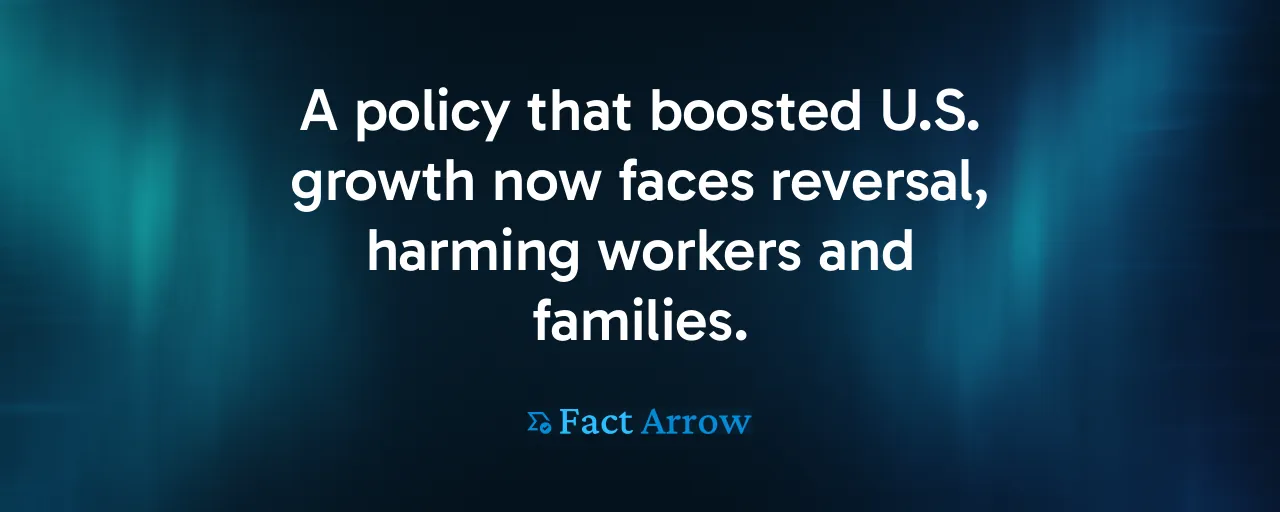A Devastating Decision
On June 12, 2025, over half a million people received an email from the Department of Homeland Security that changed their lives. These Cubans, Haitians, Nicaraguans, and Venezuelans, who fled danger under the CHNV parole program, learned their legal status and work permits were gone. Overnight, their dreams of safety and stability turned into fear of deportation. How could a policy that saved lives be erased so quickly?
The Biden administration created the CHNV program, which since 2022 allowed 532,000 people to escape violence and poverty. The Trump administration, with a Supreme Court ruling on May 30, 2025, in its favor, decided to end CHNV. These individuals followed rules, passed vetting, and built new lives. They worked, paid taxes, and became part of communities. Now, they're told to leave or face removal, with a $1,000 'exit bonus' as a cold consolation. This choice prioritizes fear over humanity.
A nurse who fled political persecution is now unable to work. Or a construction worker supporting a family, suddenly jobless. These individuals are real people who contributed to America. Over 80 percent found jobs within a year, filling gaps in health care and logistics. The decision to end CHNV ignores their value and the program's success. It's a step backward, one that demands we look closer at what was lost.
Humanitarian parole has long been America's way of offering refuge, from Hungarians in 1956 to Afghans in 2021. CHNV continued that tradition, providing a legal path for those in need. The program delivered results: less border chaos, stronger communities, and lives rebuilt. Terminating it betrays a legacy of compassion that defines the nation at its best.
The impact extends beyond migrants. Families, businesses, and neighborhoods feel the impact. Schools lose students, employers lose talent, and communities lose vibrancy. The ripple effects are profound, touching everyone who values fairness and opportunity. To grasp why this matters, we need to examine CHNV's achievements and the consequences of its end.
A Policy That Delivered
In 2022, the U.S. border was under strain. Daily crossings by Cubans, Haitians, Nicaraguans, and Venezuelans reached 7,000, fueling dangerous smuggling and overwhelming agents. CHNV turned that around. By offering a legal route, it cut irregular crossings by 98 percent, reducing daily encounters to under 1,400 by March 2024. The result was a safer, more orderly border.
Beyond security, CHNV boosted the economy. A Federal Reserve study links immigration, including parolees, to 0.1 percentage points of annual GDP growth from 2022 to 2024. Parolees filled critical roles in construction, hospitality, and health care, with 80 percent employed within a year. Their taxes supported schools and roads. This was a program that worked for everyone.
Claims that CHNV harmed American workers are contradicted by evidence. Dallas Fed data shows immigration drove 70,000 monthly job gains in 2022 and 100,000 in 2023, with minimal wage impact on native-born workers. The Congressional Budget Office predicts a 2 percent larger labor force by 2034, creating fiscal benefits. Parolees contributed to a stronger economy.
Security arguments also lack weight. CHNV applicants faced biometric screenings, FBI checks, and health clearances. No parolee has been linked to terrorism since 2022, and their arrest rates are lower than the U.S.-born population. The idea that CHNV endangered safety ignores its rigorous process and clear record of success.
The Fallout of Reversal
Terminating CHNV creates new problems. Without legal pathways, desperate families will risk deadly smuggling routes, driving up border crossings and straining resources. Asylum courts, already backlogged, will face greater pressure. Cities supporting migrants will struggle even more. History shows that before CHNV, the border was chaotic. Why invite that turmoil again?
The human cost is heartbreaking. Roughly 200,000 parolees lost work permits, disrupting lives and businesses. Legal aid groups report widespread fear as migrants seek asylum or other protections. Some Cubans may qualify for adjustment, but most face uncertainty or deportation. These are people who trusted America, now left in limbo.
The offer of a $1,000 'exit bonus' for voluntary departure feels insulting. It's paired with threats of swift removal and a five-year re-entry ban, prioritizing punishment over solutions. This approach fails to enhance security or fairness, instead tearing apart communities and betraying values of compassion. America deserves a better path.
Building a Humane Future
A better way exists. Reviving humanitarian parole, with strong vetting and clear guidelines, would restore America's role as a beacon of hope. Programs like CHNV show legal pathways reduce disorder, support the economy, and save lives. Congress could protect parolees with Temporary Protected Status or a citizenship path, creating lasting solutions.
The struggle continues. Advocates are fighting in courts to preserve parolees' rights, and communities are rallying to support affected families. Every action counts. By demanding policies that reflect compassion and strength, we can shape a nation that opens doors to those in need. That's the America worth fighting for.
